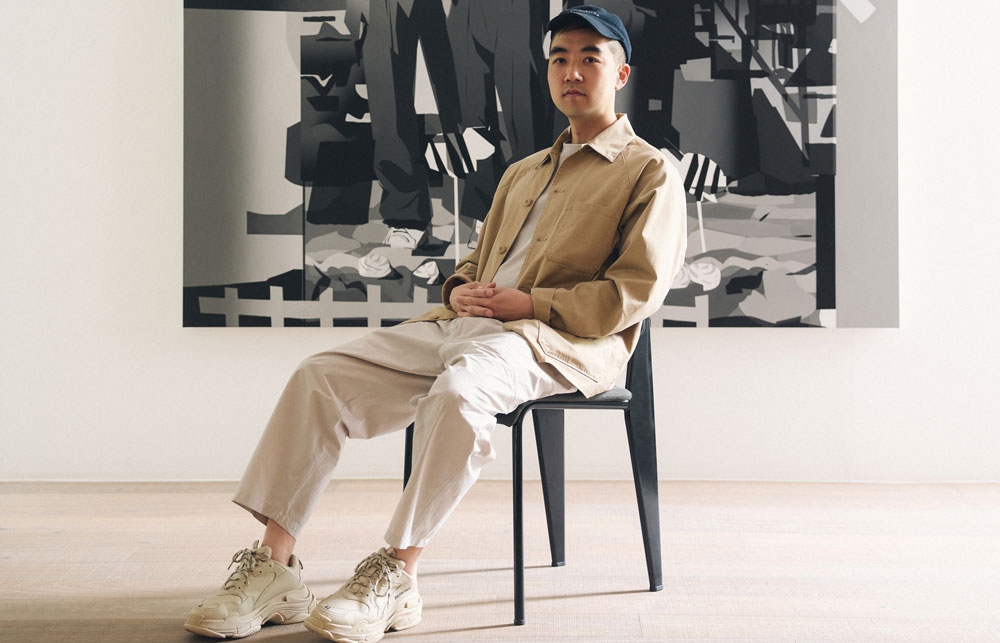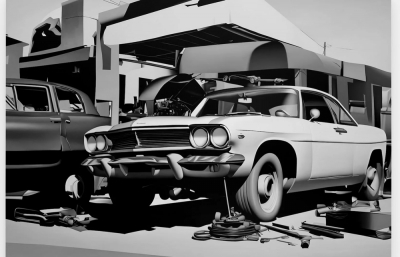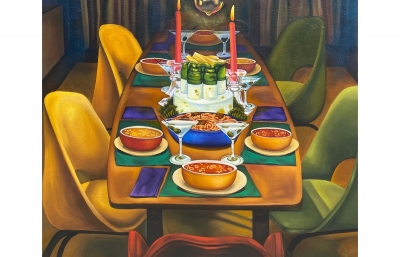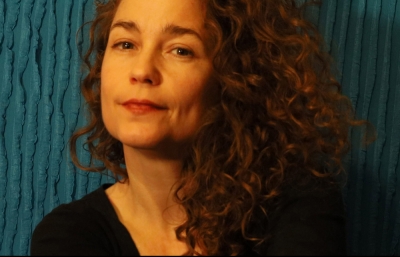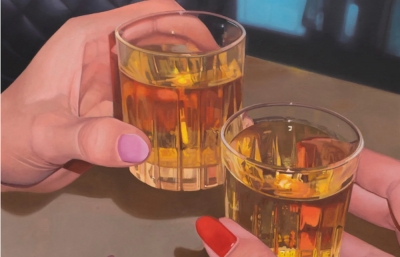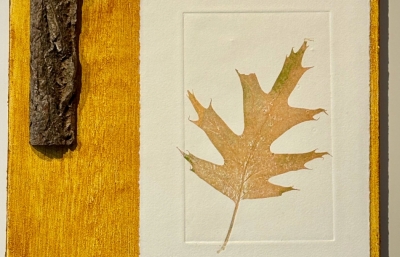Mike Lee
The Privilege of Innocence
Interview by Charlotte Pyatt // Portrait by OnArt Studio
"Go west, young man!" An iconic phrase that drove America's westward expansion—a call to citizens and immigrants alike, to embrace Manifest Destiny and seek new lands, prosperity, and freedom. Over the last century, the romantic notion of The American Dream has transitioned drastically. Emerging from a culture of exploitation, our understanding has transitioned from one of equality to one of capitalism… for the life you can’t afford but can purchase on credit.
Mike Lee is a Korean-American artist, born in California to parents who migrated from Korea in the 1980s. For his last exhibition Homecoming at Jason Haam Gallery in Seoul, Mike Lee considered the currency affording young people the privilege of innocence; juxtaposing The American Dream with the global political economy.
Culture and identity continue to be prevailing themes, as his faceless characters become vehicles for memory and expectation. Across a monochromatic spectrum, grayscale gradients and bold shapes soften and overlap to render a more familiar vista, while clean lines collide with naive brisk strokes. From everyday moments of domesticity to Apache helicopters, Mike contrasts the transnational experience of the frontier myth through the lens of his Korean heritage and family photographs.

Charlotte Pyatt: From geometric forms and abstraction, Homecoming offers a more naturalistic arrangement for you. What inspired this shift?
Mike Lee: With Homecoming, I kept thinking back to a painting titled “'61 Pontiac” by the American artist Robert Bechtle, a photorealistic painter from the Bay Area. His focus on observation and beautifying suburban middle America reflected the spirit of what I wanted to capture for this show.
As immigrants, it is a point of pride for my parents to have achieved The American Dream. They were able to give my sister and me the upbringing they always envisioned. While my earlier works derived primarily from my imagination and were heavily influenced by my commercial background, Homecoming directly references my family’s photographs and specific memories from my youth.
Beyond your imagination, a more familiar almost sinister atmosphere emerges. How does this contrast with the whimsy we have seen in earlier works?
The central theme of this show concentrates on the privilege of innocence. I focus on making distinct aesthetic shifts with each body of work while also carrying over elements from previous paintings. My intention is to capture feelings of nostalgia through whimsical shapes and naive line work while contrasting them with stark representational images that question how that innocence was allowed to exist.
This privilege underpins my evolving understanding of unsound monetary systems and how they contribute to global inflation, predatory lending to impoverished nations, influencing geopolitics, and exacerbating the wealth divide. This monetary system also allows for the unlimited printing of money, which can fund a dominant military complex and finance unsustainable wars. This exhibition acknowledges that the innocence I was fortunate to inherit was a privilege granted through this current system.

The subject of war seems uncharacteristic for your style, so how does it align with your evolving vision?
Attack helicopters and fighter jets were my childhood obsession. I would construct miniature scale models, go to airshows with my dad, and stare in sheer awe. Growing up in a safe suburban bubble, I suppose I was yearning to experience the opposite. However, as I grew older, the sobering reality and repercussions of war came to light and made me appreciate the privilege of my sheltered innocence.
The “Veteran” directly references a photograph of my grandfather I took on my first trip to Korea in 2013. The photograph documented his accomplishments along with the pride he held for his country, represented through his uniform and medals. War is still a prevalent issue throughout Korean society. There is still a mandated conscription for every male. I intentionally left void any facial features so this figure can represent every citizen who has and still must sacrifice their time and life to serve.
Nostalgia often underpins your vision, and for Homecoming there is recognition of a more collective memory. As a second-generation Korean American, how do you feel your understanding of The American Dream differs, if at all, from that of your parents?
The ideal notions of The American Dream no longer exist today. It was an aspiration my parents' generation was still able to attain, but with inflationary pressures and the exponential rate of change through technological advancements, I feel we have shifted to an “adapt and adjust” society, or otherwise feeling left behind. If my parents immigrated to the States today, would they be able to achieve the same amount of success? It seems less and less likely to me.
Growing up in suburban America, I always found myself trying to escape the safe confines. But now looking back, I appreciate the quiet, peaceful, and worry-free environment my parents worked so hard to build. The paintings for this show reminisce on that time, and I wanted to bring moments of their achievements to the country they uprooted themselves from.

"I feel we have shifted to an 'adapt and adjust' society, or otherwise feeling left behind."
I imagine traditional models of success would have been important to your family. How did they accept your decision to become an artist?
My decision to become an artist was the most contentious moment between my parents and me. Because the early part of their lives was fraught with uncertainty, their ideas of success are that of a stable and predictable life. Coming from a place of love, they tried to direct me away from an uncertain and volatile future. Fortunately, I was able to appease their anxieties by finding a decade-long career in feature animation. Their concerns for me to be financially stable vanished; that is, until I quit to pursue my painting career, lol.

There is a cinematic elevation of light and shadow in this latest series, beyond the characters to the surrounding context. Does this correspond with your experience in filmmaking?
I have specialized in cinematic staging with the use of color and lighting for the film industry for over a decade. My job was to create paintings that established and shifted the emotional tone for a given scene. This training prepared me to apply it to my current practice. I’m able to convey my intent while also dialing up or down subtle and nuanced emotional tones purely through the use of light and shadow.
Since digital technologies have long accompanied your creative evolution, how do they continue to inform your process now?
Digital tools, particularly Photoshop, have always been an integral part of my practice. They allow me to explore countless variations for each idea that I wouldn’t have been able to achieve purely through the use of physical media. The trade-off for over-planning is that I miss out on spontaneous moments of discovery.
With the recent body of works, I’ve been exploring my interpretation of the artist’s hand, embracing misregistered layers and glitch-like accidents. I’ve also been captivated by AI-assisted image generation. I’m still in the early stages, but going forward, I plan to utilize the exponential range of ideas it has to offer.
@immikelee // This interview was originally published in the Winter 2024 Quarterly

